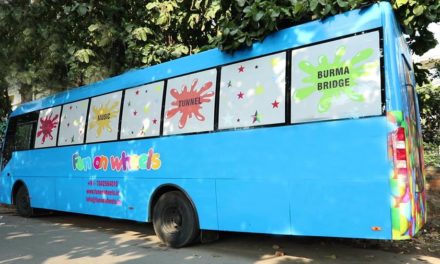
The ‘Nirbhaya ‘ incident , the Pulwama bombing , the inhumane mass killing in New Zealand have prompted three Grade 5 students- Aanya , Krishna and Sana of Pathways School ,Gurgaon to be concerned about the loss of culture and values in society today
They recently conducted a survey of 150 people to find out how people in general think and feel about this .The survey results clearly showed that culture and interpersonal relationships and the value aspect of culture were rated as highly important.90% of them felt that culture is changing very rapidly as compared to the past . This change is not intentional but driven to a largely by exposure to television , social media and the access to vast information on the internet. The survey also indicated that while some of the changes are positive and progressive with a greater respect for individual freedom, greater empowerment for women; there are many negative and regressive changes or instances of loss of culture like weaker family ties, reduced importance of interpersonal interactions and relationships, lower respect and tolerance, loss of traditions and lack of understanding of festivals and religious/spiritual concepts.
Aanya, Krishna and Sanya feel not enough thought and importance is consciously given to this matter, but its impact is irreversible and very damaging.
There is a need for action to preserve key elements of culture and be more mindful of our values, as studies have shown that societies that have stronger cultural grounding, see far lower rates of teenage crime than other societies with weaker culture groundings.Each one of us must play a more active role in fighting the ongoing loss of certain key aspects of our culture and value system.
The three students feel strongly for the issue and have created a list of Do’s and Don’ts that can help preserve positive aspects of our culture and value system – both at the individual/family level and for people in authority.
Do’s:
- Give quality time to your family.
- Explain your family culture, to your family members (especially children) in depth – use family trees, stories about your family, etc.
- Teach your child his/her their mother tongue (learn it yourself if you feel you could do with some help too)
- Discuss your country’s and your region’s history with your family (especially with children, you may need to read up to be able to do this)
- Provide more exposure to your family to your country’s traditional arts and architecture– music, dance, paintings, monuments, during family vacations
- Share within your family about your religious/spiritual beliefs, especially with children (be open/tolerant if people do not share your beliefs)
- Help your child understand the universal cultural values – respect for others, tolerance, etc.
- Teach (and practice) tolerance in your family and in your broader dealings with others
- Help your child make a conscious choice about the values that he/she would like to follow (this can change as they grow) and guide/support them in living their chosen values
- Provide your children a role model, by living your own values
- Avoid using gadgets during family time.
- Don’t show your child inappropriate movies and TV shows.
- Choose content that you watch on social media, more consciously too.
- Avoid reacting with anger in haste in public.
- Don’t express your anger through violence.
- Do not accept the ‘wrong’ in the society with a shrug and a thought ‘it is ok’
Don’ts
- Avoid using gadgets during family time.
- Don’t show your child inappropriate movies and TV shows.
- Choose content that you watch on social media, more consciously too.
- Avoid reacting with anger in haste in public.
- Don’t express your anger through violence.
- Do not accept the ‘wrong’ in the society with a shrug and a thought ‘it is ok’
If you as an individual also agree with these students and want to support their efforts and recommended actions , then please click here to be a part of their campaign




